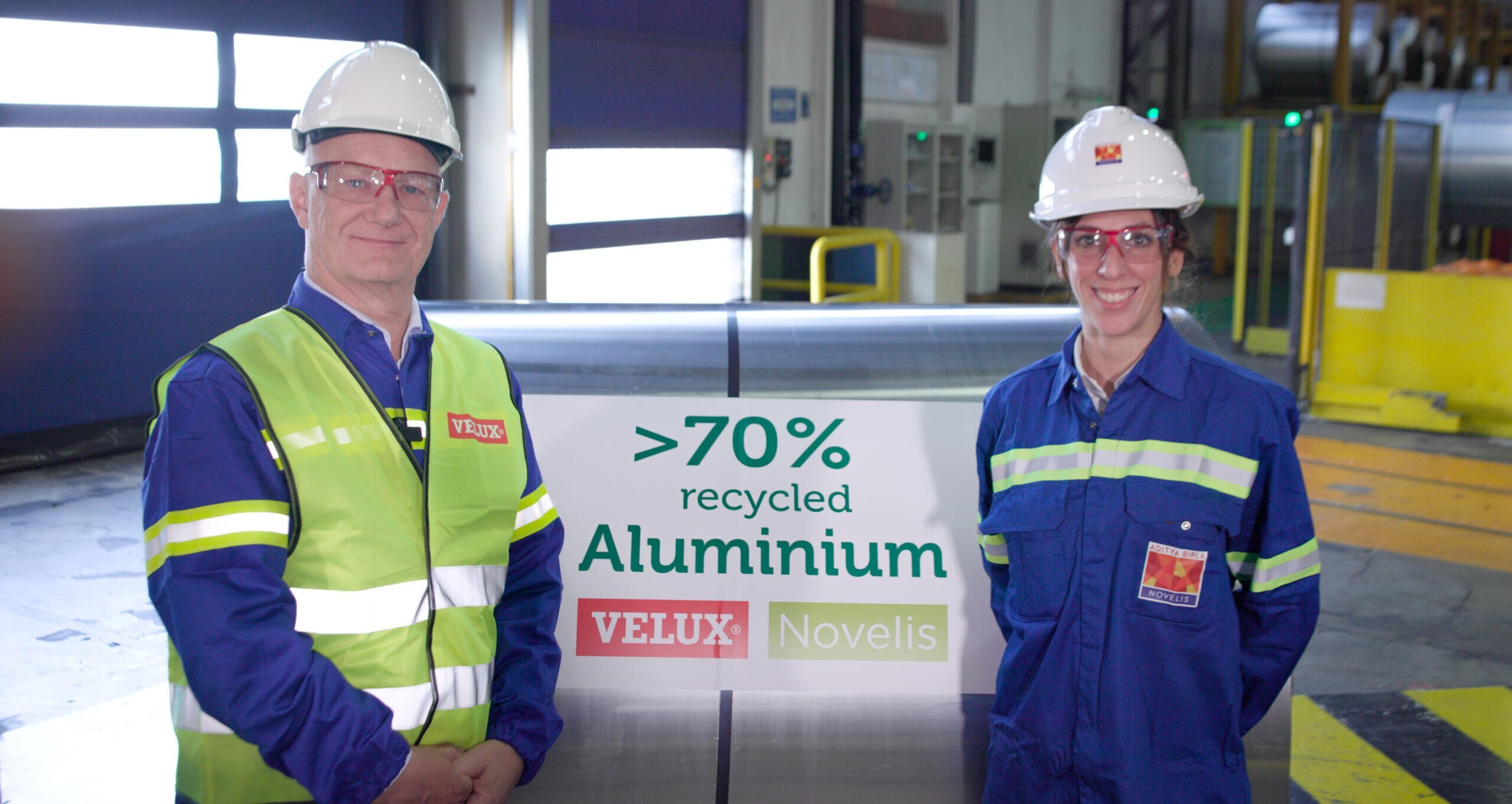

Danish roof-window innovator VELUX has turned last year's letter of intent into a multi-year supply deal that secures flat-rolled aluminium with over 70 per cent recycled scrap for its windows and flashing kits. Novelis states the tailored alloy already passed VELUX's stringent salt-spray and freeze-thaw tests and will reduce the material's specific footprint to under 4 kg CO2 per kg this year, less than half the European primary average.
 Image source: Novelis
Image source: Novelis
The deal comes on the heels of Novelis' recent introduction of the first coil produced from 100 per cent end-of-life automobile scrap and its $4.5 billion investment pipeline for recycling capacity. This is an indication that high-recycled alloys are transitioning from specialities to standard. As per the latest data on industry greenhouse gas (GHG) emissions and production for 2022, released by the International Aluminium Institute (IAI) in late February 2024, the wider usage of recycled scrap has helped lower emissions even as total production has increased.
Larger than one contract
Aluminium contributes the most to VELUX's product emissions. Substituting high-recycled metal is a quick route to the company's commitment to halving product CO2 in 2030 and reaching 3 kg CO2/kg by the end of the decade. Novelis has already substituted more than 50% of the metal it exports to VELUX with the new material and will increase that proportion "gradually over the next few years."
VELUX is among the aluminium leaders in the World Economic Forum's First Movers Coalition, which pledges buyers to buy low-carbon metal (<3t CO2/t) by 2030. The Novelis deal demonstrates how such commitments are now materialising into binding deals.
Why the 70 per cent threshold matters
Each additional 10 per cent recycled content reduces approximately 0.8t CO2 per tonne of rolled aluminium. Increasing from the current European average (35 per cent) to 70 per cent thus saves circa 2.8t CO2/t—approximating the annual electricity consumption of a standard EU household. If extrapolated to VELUX's yearly demand, the reduction is roughly equal to removing 11,000 cars from the road.
With the rapid greening of the aluminium sector, it is fully prepared to be the core industry of the 21st century, helping build a clean, green and prosperous future.
Also read: Transforming battery housing into outdoor panels for Volkswagen with Novelis' closed-loop innovation
Responses








